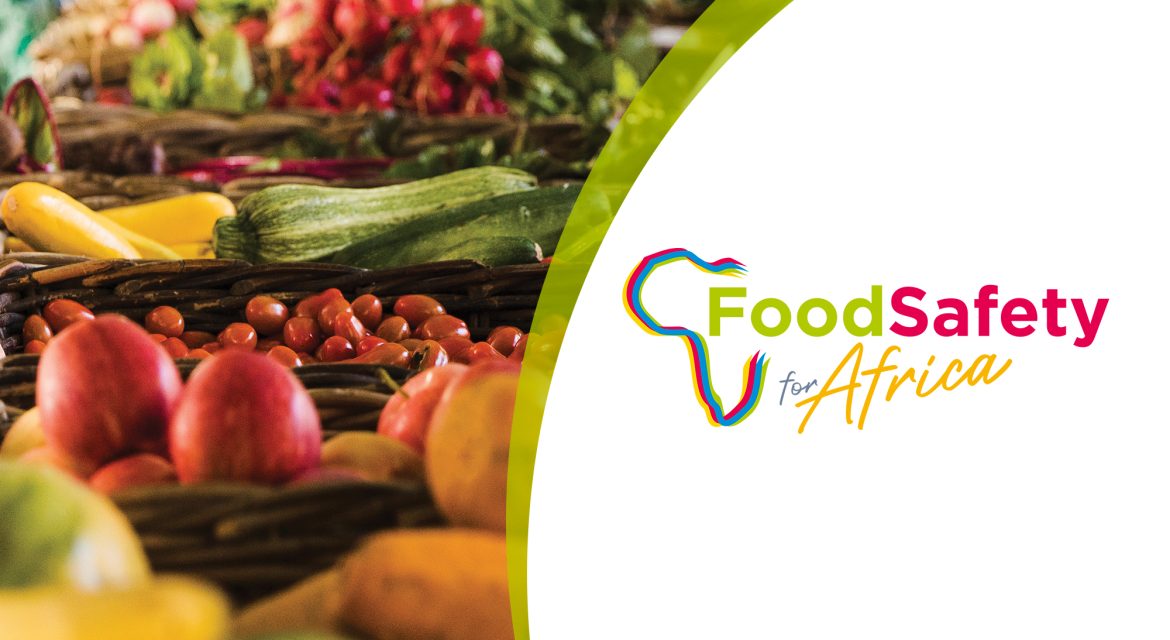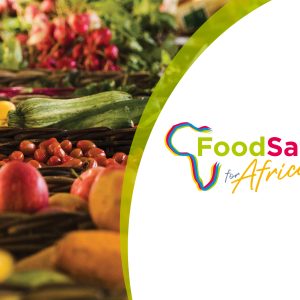The FS4Africa Open Call 1 attracted a remarkable 404 proposals from 45 countries, representing a diverse mix of applicants (including startups, SMEs, public and research organisations, and NGOs). This noticeable response reflects the strong innovation capacity across Africa’s food ecosystem and highlights the strong interest in transforming food safety systems across the African continent.
The majority of proposals originated from Kenya (70 proposals, 17%) and Nigeria (65 proposals, 16%), followed by Uganda (32 proposals, 8%), Tanzania (29 proposals, 7%), and Ghana and Mozambique (22 proposals each, 5%), reflecting strong engagement from both East and West Africa.
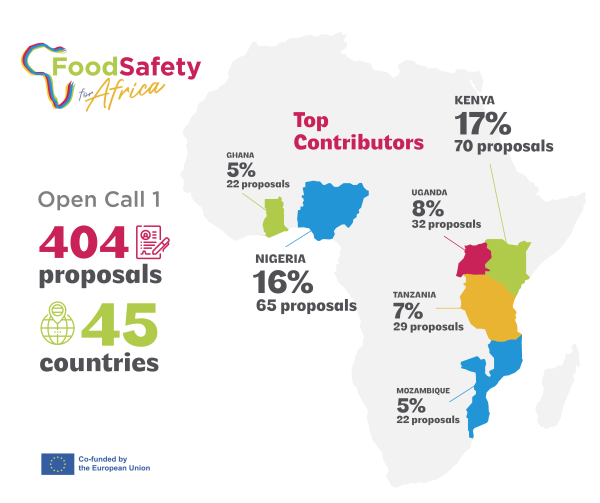
Out of the 404 proposals submitted to the FS4Africa Open Call 1, 43% (174 proposals) were linked to the project’s existing Use Cases, while 56% (225 proposals) introduced new innovative solutions addressing food safety challenges in the African informal sector. A small number of five proposals (1%) did not specify a clear alignment with either category.
Link to FS4Africa Use Cases
Among the proposals tied to FS4Africa’s Use Cases, Use Case 1 – Sustainable Aflatoxin Management through a Breeding and Food Convergence Innovation approach received the highest engagement, representing 32% of Use Case-linked proposals, followed by Use Case 2 – Reduction in the use and misuse of pesticides (31%), Use Case 3 – Safe and healthy vegetable and fish production through online platforms and mobile communication (22%), and Use Case 4 – Microbiological quality of tomatoes and leafy greens from farm to fork (14%).
This distribution highlights a well-balanced interest across all four Use Cases, confirming the relevance of FS4Africa’s thematic priorities.
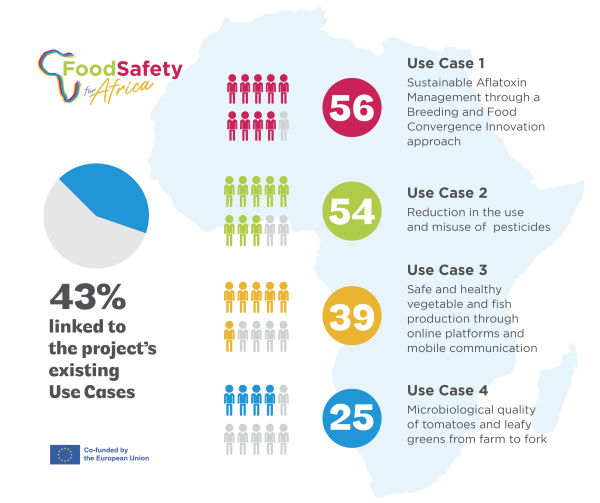
New innovative solutions addressing the food safety challenges in the African Informal Sector
In contrast, with regards to the proposals introducing new solutions addressing the food safety challenges in the African Informal Sector, over 50% of these focused on food safety issues related to weak value chain organisation, traceability, and authentication, while others addressed mycotoxin contamination (18%), microbial contamination (15%), pesticide residues (11%), and food adulteration (3%).
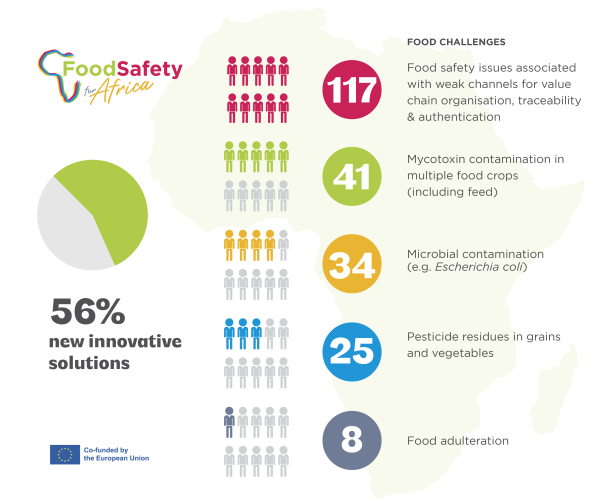
This strong participation and dynamic balance between building on project’s solutions and introducing new approaches demonstrates the project’s contribution to enhancing food safety, improving traceability, and fostering innovation-driven transformation across Africa’s food systems, particularly within the informal sector.
Building momentum for Safer Food Systems in Africa
The success of the FS4Africa Open Call 1 reflects more than strong participation. It contributes to a vibrant and sustainable innovation network committed to tackling food safety challenges across Africa. The call demonstrated both the extent of regional engagement and the depth of expertise within Africa’s food systems ecosystem. The diversity of applicants, from startups and SMEs to public and research organisations, underscores a powerful convergence of knowledge and innovation capacity. This strong participation marks a significant step toward building safer, more transparent, and more resilient food systems across Africa. As the selected projects start turning their ideas into action, they will not only accelerate innovation in food safety practices but also contribute to systemic transformation across local, regional, and continental levels, advancing FS4Africa’s mission to empower communities, protect consumers, and enhance trust in food systems.

